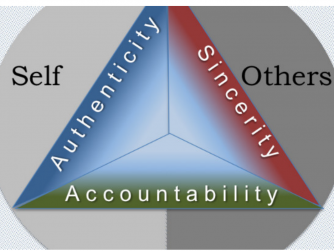Time may heal all wounds. But family businesses are living proof that time marches slowly – painfully slowly. Deep, historical emotional distresses in families persist like few other things can in this otherwise rapidly changing world of ours. This often silent phenomenon lies at the heart of why family businesses operate with a distinct competitive disadvantage when compared with non-family-owned businesses.
(Part II of this series will discuss, on the other hand, the unique competitive advantage of family businesses.) Slights and grievances naturally occur wherever people enter relationships with one another. And for most people, their place of work presents the largest opportunity, outside of family and intimate friend networks, for developing relationships. You certainly don’t have to be in a family business to get offended by a colleague’s actions, as we all know. But your reasons for being upset probably stem from recent conflicts. And the resulting offense taken is not likely to have penetrated anything vital or vulnerable – like your self-image.
Of course, not every genesis of relationship issues in family businesses are of the self-image magnitude. But many come darn close, as they often trace back to a person’s
formative years. And old emotional wounds, no matter how diligently ignored or repressed, continue to affect the competitiveness of the business – by diminishing the power of the business’s key assets, its people.
When working with my business coaching clients to unearth why results are not satisfactory, we love to talk about business
processes. But the overlooked mother of all business processes in any organization is talk – the constructive talk of co-workers fixed on coordinating action in order to achieve results. When that crucial talk is missing from the business, so is its by-product, the commitment to right action. And we all know what results we get in business when we don’t commit, and when we fail to act. When old personal wounds hover in the mind, we may interpret professional differences of opinion as something a whole lot more sinister. And when we do that we can end up in nasty arguments. After a few of those entanglements, we’ve had about enough. We learn in the process what triggers them. And so we stay away from that. The way we stay away is to not engage. That means we don’t talk. And we don’t get much done when we don’t.
When family members in business together don’t talk together you get some or all of the following outcomes. Perhaps you will recognize them. people occupy jobs they are ill-fitted for
people receive compensation that would not stand up to scrutiny in another business fuzzy lines of responsibility and undeclared job descriptions little to no accountability to other family members, or anyone else unfair, privileged stature for some, especially in the eyes of non-family employees meetings that never quite tackle the hard issues In a nutshell, the simple and ugly result is competitive disadvantage. Because the aforementioned number one business process that underpins all other business is downright dysfunctional. The market’s awareness of your competitive disadvantage
may take time. But the march of father time is always undeterred, it affects all, and may even seem to quicken when the mother of all business processes is not performing
inside your company. Your customers will ultimately yield to the influence of time, even as you resist, and find an alternative to you, lest they also suffer the cadence of father
time’s universal judgment — by remaining linked with your uncompetitive business. “The business” that feeds the family can also serve as its potential saving grace
The way to a happy ending chapter in this all-too-common story is to find able outside business coaching assistance – in order to fearlessly, but in the same measure, respectfully and gently, facilitate the family co-worker conversations that are missing. This can only be done by someone without a personal stake in the outcome — other than
generating objectively satisfying results for the #familybusiness. “The business” that feeds the family can also serve as its potential saving grace — and be the unbiased and unemotional reason – for putting the un-talked about stuff on the table. But on the conference table, not the dinner table. Let any relationship progress made there flow back to the dinner table as it will. The outside facilitator should understand the flow of cash as much as the flow of conversation, and how to enrich both. We are talking about the business here. But a business that is conducted by a
family. Clarity should be the outcome, but indignity should not be the casualty. Inquiry should be the approach, but
inquisition should never be allowed. The goal is to prevent historical family issues from disabling current family business vitality. Nothing more. Nothing less.
The family is the foundational community of all humanity. With the right help, family teams can be the highly functioning core element of any business. Of even the most
competitive of businesses. More on that in the next installment.
Bill Carroll coaches business teams of all types. (But family business teams are the most fascinating !!)





